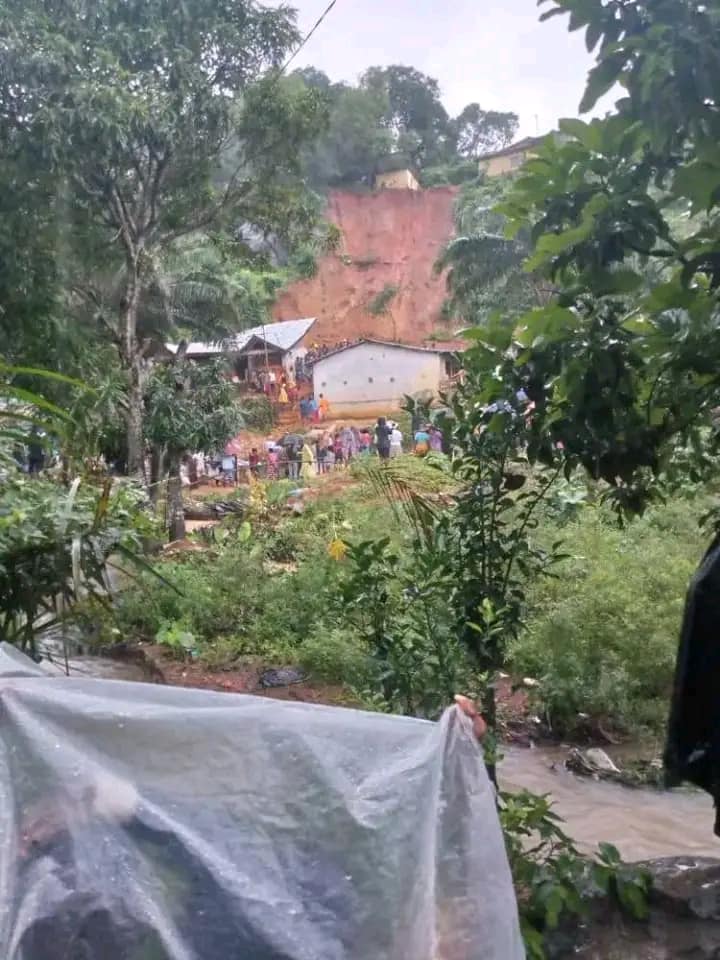When torrential rainfall triggered flash floods and mudslides in Freetown on August 28, we were left with a trail of destruction, death, and displacement. The outpouring of emotions, condolences, and prayers was overwhelming. Like a scene choreographed from a movie script, the disaster-affected communities were prepared for the visit of our leaders. For the first, and perhaps the only time, those run-down communities blighted by extreme poverty assumed a temporary sense of importance. Long, winding speeches were made. Promises galore. And handouts were delivered to the victims with some finding their way to undeserving recipients. Then the visiting team retreats to their illusions – like nothing happened yesterday. And nothing needs to be done tomorrow—everyone moves on, at least for another year. Then another disaster strikes. And the cycle is repeated. This is Sierra Leone. This is how we have been conditioned to think, believe, and act in the face of crises and national disasters. But are we learning any lessons? Are we prepared to make hard choices and bold decisions?
At a strategic emergency coordination meeting held by the National Disaster Management Agency (NDMA) on August 29, 2022, the Agency’s Director of Research, Monitoring and Evaluation, Abu Bakar Bangura cited “climate change and extreme weather conditions, poor urban planning, poor waste management, regaining of swamp lands, building on waterways and beyond demarcated zones, sand mining and poorly constructed houses and/or makeshift structures” as key factors “for the continuous flooding in Freetown”. Apparently, we seem to know where the problem is. But are we ready to take the necessary action?
In a previous edition, we raised a similar issue about the environment – underscoring a flagrant abuse and destruction of our beachfront, done in the full glare of the authorities who might even be complicit in this act of environmental degradation and destruction. If we can’t act against the powerful, can we inspire the poor to protect our environment?
One lesson we have not learnt is the need to depoliticize national disasters. While we are all complicit in most of these environmental disasters, it is our collective responsibility to work on common solutions devoid of party politics. On the day commemorating the August 14, 2017 mudslide that left over a thousand dead, rather than appealing to the nation’s collective conscience for action, the country’s First Lady chose to cast aspersions on the previous government for the tragedy. And it was no surprise for party apparatchiks within the APC to return the favour with the August 28 disaster. Are we for real?
We may know where the problem lies and the solution for preventing another disaster. But are we ready to make bold decisions? Central government for example has been slow or rather adamant in devolving some vital functions to local councils, especially those related to permits for construction and urban development. This is critical for proper urban planning that could reduce the regular occurrence of flooding in the city. But our divisive politics and control of resources are major impediments to the realization of this. Again, we seem not to be learning anything. Doing the same thing year in, year out. And getting the same result.
We have seen symbolic ceremonies and events aimed at addressing the rampant deforestation in the Western Area. The President did a symbolic national tree planting exercise couple of years ago that was aimed at planting 5 million trees over four years in a bid to minimize the impact of climate change. A similar initiative from the Mayor of Freetown to restore Freetown’s forest cover with the planting of one million trees over three years has been extensively covered by local media. While we do not know the progress of these important initiatives, the fact that we keep encroaching on our meagre forest cover for development purposes – mostly in connivance with state officials – defeats the very purpose of our initiative for reclaiming our forest and protecting our environment. If we can’t protect the existing forest we have, there is no guarantee the tree planting initiative will work when powerful individuals continue to flout our environmental rules with reckless abandon and encroach on forest-protected areas. This would only increase the risk of a much bigger tragedy than we saw on August 14, 2017. Are we learning any lessons from previous environmental disasters?
We can choose to paper the cracks on the massive problem we have at hand in protecting our environment and preventing major disasters. We can continue to pay lip service to our commitments for a change. We can opt to pretend that all is well and forget about yesterday’s trouble for tomorrow’s greed. But the environment will keep reminding us that it is not in competition with us. Its response will only become more brutal and aggressive to our callous, reckless, and greedy use of this God-given resource. And the sad reality is we are not learning or doing anything!
Whatever you are up to, have a nice weekend.


